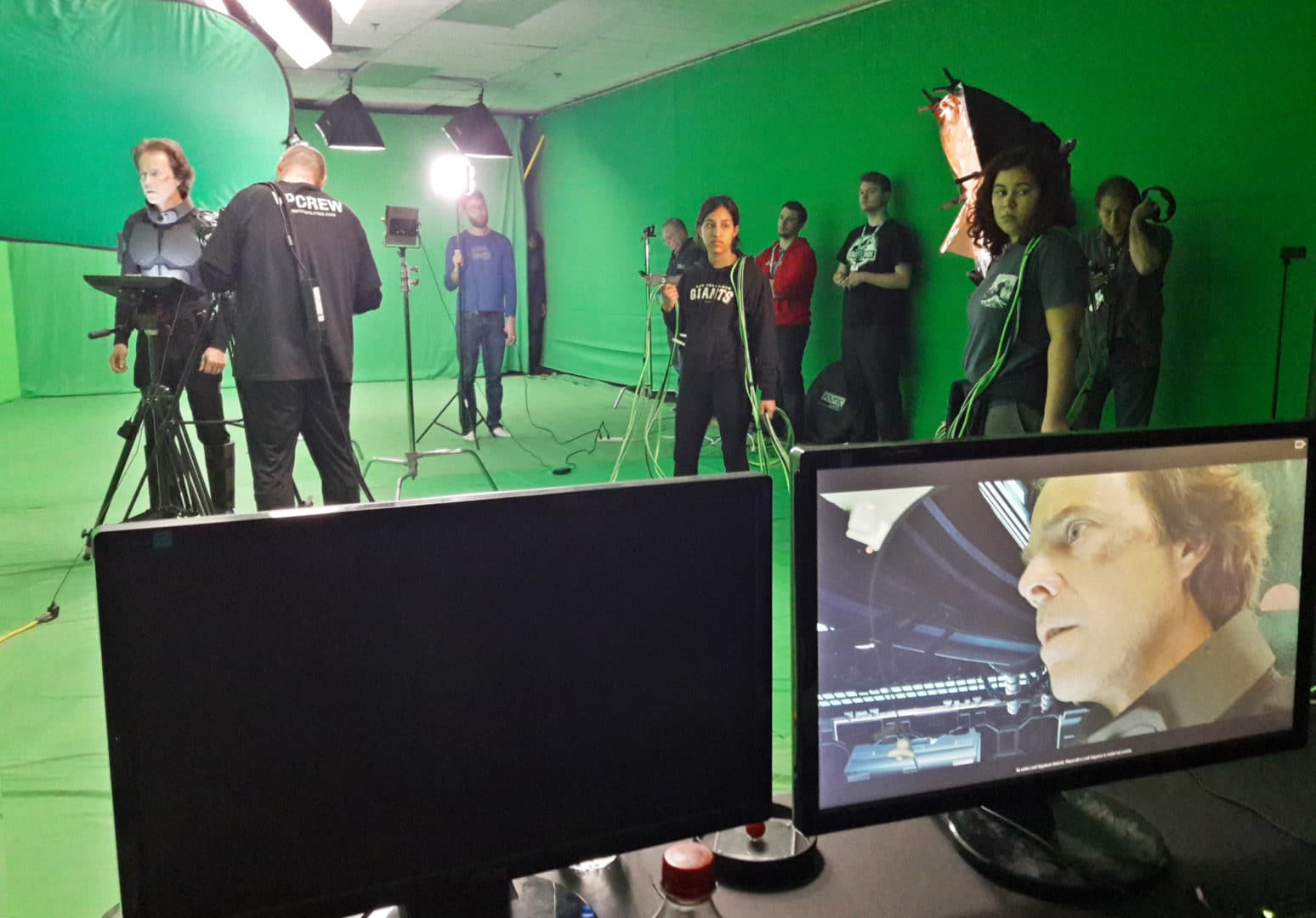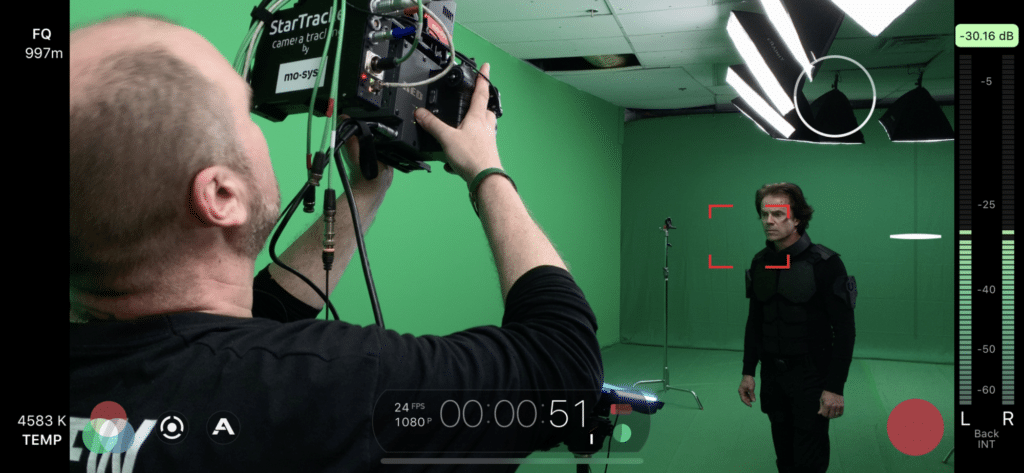2020 marks DAVE School’s 20th anniversary.
ORLANDO, Fla. – The Digital Animation and Visual Effects (DAVE) School recently welcomed Epic Games’ real-time immersive technologies specialists to its soundstage at Universal Studios Florida, to help train our visual effects students in one of the school’s newest film technology additions: Real-Time, In-Camera Virtual Production. These cutting-edge technologies are revolutionizing the way films are made by enabling filmmakers to create computer-generated backgrounds for green screen visual effects in real-time.

Experts with Epic Games, a company innovating with these technologies, which include the Unreal Engine game engine used in popular games like Fortnite, worked with DAVE School’s film visual effects and immersive technologies production students on various techniques to master Real-Time, In-Camera VFX. Orlando’s Dr. Phillips High School Film Production Magnet Program students were invited to meet the Epic Games crew and had a chance to try Real-Time as well.
“Real-Time gives DAVE School students a tremendous advantage,” said Louis Cataldi, Epic Games’ Global Education Evangelist. “There aren’t many schools in the world teaching this technology right now, yet there’s already an enormous demand in Hollywood for people who know how to use it. We are constantly getting requests for skilled people from production companies.”
Real-Time, In-Camera visual effects technology can save filmmakers lots of time and money in post-production because it eliminates the guesswork in replacing green screenshots’ desired background in the postproduction phase, a process that can be lengthy and costly. With Real-Time, images are created within the green screen scene in ‘real-time’ and are filmed together with the actors in the foreground. The Lion King and The Mandalorian, are two recent productions that incorporated this technology.

“There is no better way to mark two decades of teaching the most advanced techniques in filmmaking, visual effects, game and immersive technologies than making Real-Time available to our students,” said DAVE School Academic Director Jon Gress. “Technology evolves rapidly and the only way our students will continue to be the best in the industry is if we make the newest and latest tools and cutting edge techniques available to them. We have been committed this for 20 years and will continue to empower our students to be successful in the film, VFX, game, simulation, and new immersive technologies industries.”
The DAVE School is located at Universal Studios Florida®. Its 17,800-square-feet facility inside Sound Stage 25 includes a new 1,800 sq ft mixed-reality lab, a 3D printing lab, and a VR arena lab. DAVE School’s core programs in Game Production and Visual Effects aim to get students’ learning and training experience as close to “Industry Studio Ready” as possible.
For more information on our Visual Effects and Game Production programs.
About Dave School
The Digital Animation & Visual Effects (DAVE) School was founded on June 8, 2000. It is a multi-award-winning
school including over 10 Emmys and Telly awards combined. Students come from all over the world as DAVE School is an industry destination founded by industry executives in the year 2000 to close the talent gap between the expertise needed in the industry which was lacking the skill set and studio experience.
NUC University (NUC) is an accredited institution and a member of the Middle States Commission on Higher Education (MSCHE or the Commission) www.msche.org. NUC’s NUC University – IBC Technical Division (NUC-IBC), NUC University – Florida Technical College (NUC-FTC), The Digital Animation & Visual Effects School (The DAVE School), and Hillsboro Aero Academy (HAA) are included in this accreditation. NUC’s accreditation status is Accreditation Reaffirmed. The Commission’s most recent action on the institution’s accreditation status on 2019 was to reaffirm accreditation. MSCHE is recognized by the U.S. Secretary of Education to conduct accreditation and pre-accreditation (candidate status) activities for institutions of higher education including distance, correspondence education, and direct assessment programs offered at those institutions. The Commission’s geographic area of accrediting activities is throughout the United States.
NUC has four additional academic units: NUC University – IBC Technical Division (NUC-IBC), NUC University – Florida Technical College (NUC-FTC), The Digital Animation & Visual Effects School (The DAVE School); and Hillsboro Aero Academy (HAA). Information about NUC, NUC-IBC, NUC-FTC, The DAVE School, and HAA is available at https://nuc.edu/, https://tecnicos.nuc.edu/, https://ftccollege.edu/, https://dave.nuc.edu, and https://flyhaa.com/.


